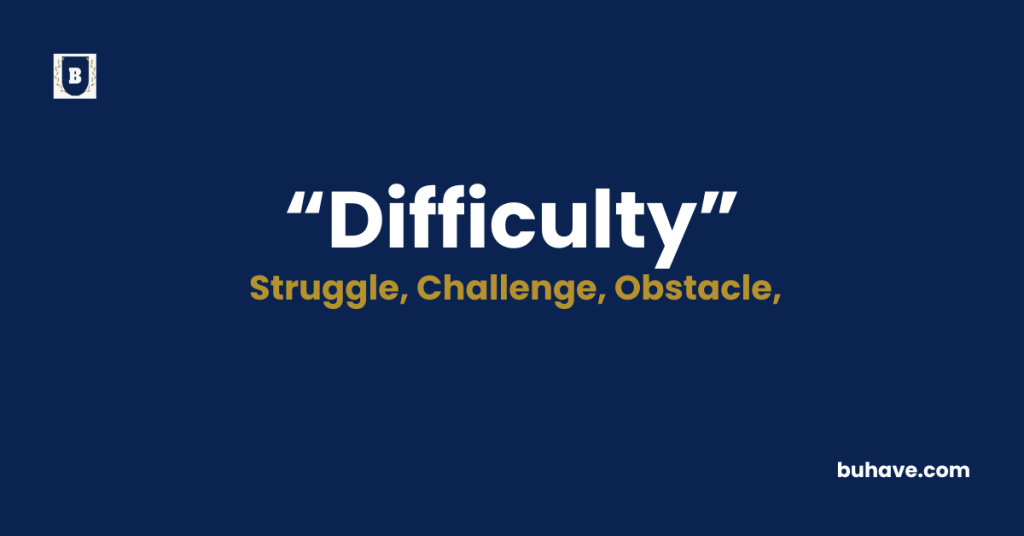The word ‘Difficulty’ (Noun) refers to a state or condition that makes something hard to do, understand, or achieve. In this guide, you’ll learn the full definition, synonyms, antonyms, etymology, and real-life examples of how to use ‘Difficulty’ correctly in sentences.
Difficulty Explained in Depth
A complete and detailed guide to the word ‘Difficulty’ including meaning, definition, examples, etymology, synonyms, and antonyms.
Meanings of Difficulty
Difficulty means a challenge, obstacle, or problem that causes trouble, delay, or hardship. It can refer to physical, mental, emotional, or situational complications that make tasks less manageable or enjoyable.
Definition
Difficulty is defined as the condition of being hard to accomplish, deal with, or understand. It often indicates the presence of barriers, complexities, or resistance in the path of progress or success.
Etymology
The word “difficulty” comes from the Latin word difficultas, derived from difficilis meaning “not easy,” from dis- (apart, away) and facilis (easy, to do). It evolved in Middle English from Old French dificulte.
Example Sentences
- She had great difficulty understanding the complex instructions.
- Despite the difficulties, the team remained focused and determined.
- Financial difficulties forced them to postpone the renovation project.
Difficulty Synonyms
- Challenge
- Obstacle
- Problem
- Hardship
- Complication
- Struggle
- Hurdle
- Setback
- Barrier
- Snag
Difficulty Antonyms
- Ease
- Simplicity
- Clarity
- Assistance
- Convenience
- Relief
- Comfort
- Help
- Solution
- Support
FAQs about Difficulty
Here are some frequently asked questions (FAQs) about the word “Difficulty”
1. What does “difficulty” mean in everyday life?
It means something that causes trouble or makes a task harder to complete, like time pressure or lack of resources.
2. Is difficulty always negative?
No, facing difficulties can build resilience and lead to learning and growth.
3. How is “difficulty” different from “challenge”?
“Difficulty” emphasizes the hardship or trouble involved, while “challenge” often suggests a test of ability with a motivating tone.
4. Can “difficulty” be used in plural?
Yes, “difficulties” refers to multiple problems or hardships someone might face.
5. What are common areas where people experience difficulty?
Common areas include learning, communication, finance, relationships, and health.

















